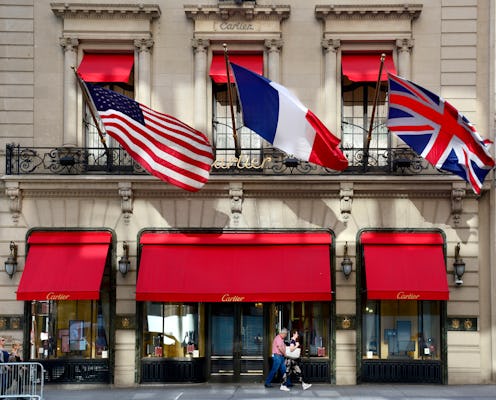(Fashion)
Cartier Just Announced The 7 Women-Led Businesses For Its Women's Initiative — And They're Good

For many customers, it's no longer enough to make a good product, a brand's mission must also push the needle towards a more ethical world. For a global business as powerful as Cartier, progression takes many forms, including the ability to offer resources to socially conscious brands working to make a difference. After months of narrowing down their finalists, Cartier’s Women’s Initiative announced its seven laureate winners for 2020.
Since it first launched in 2006, the Cartier Women’s Initiative has supported female entrepreneurs around the world, offering more than $3 million in funding. This year’s class of laureates — which have been carefully selected from a group of 1,200 applications from 159 different countries — will each receive a $100,000 investment in their businesses while the runner-ups, who were on the shortlist of 21 entrepreneurs announced in April, will each receive a $30,000 investment. As part of the program’s support for each of these businesses, both the laureates and the runner-ups will receive mentoring, networking, and business development.
The 2020 laureates — which hail from countries including Nigeria, Egypt, Denmark, Mexico, and the United States — prove that there are women-led businesses (in and out of the fashion sphere) working toward a better world, well, everywhere.
Among the laureates is Life Bank, which is based in Nigeria and delivers WHO-compliant essential items like blood and oxygen to hospitals using their own network of motorbikes and boats. Another company supporting hospitals is Rahet Bally in Egypt, which uses a card to offer discounts and access to health experts and hospitals. It also provides psychiatric counseling services, gyms, and babysitting to mothers.
Other businesses in the list of winners are focused on promoting environmental support, such as Queen of Raw, the New York-based company for businesses to buy and sell deadstock fabrics and textiles instead of letting them go to waste. There are also Woolpack Australia, which manufactures environmentally responsible packaging for temperature-sensitive objects, and Tierra de Monte from Mexico, a technology that uses bacteria and fungi to rejuvenate plant and soil fertility more efficiently.
As some businesses are introducing more sustainable practices to their clients, Equota Energy in China is helping its clients understand their energy consumption in addition to providing insight to help them reduce it. And finally, there’s Female Invest, the Denmark-based brand that sets out to educate women on investing and employing more women in the finance industry through financial educational training.
Be sure to visit the Cartier Women's Initiative website to learn more about the program and its laureate winners.
This article was originally published on